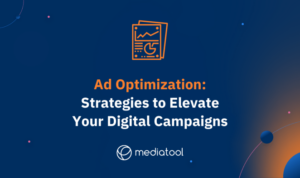Influencer Marketing for Small Business dives into the world of social media influencers, exploring how collaborating with these online personalities can skyrocket your brand’s visibility and engagement. From micro-influencers to niche experts, this marketing strategy offers small businesses a unique opportunity to reach a wider audience and increase brand awareness.
Learn about the key benefits, strategies, and measurement techniques in this comprehensive guide to harnessing the power of influencer marketing for small businesses.
Importance of Influencer Marketing for Small Business
In today’s digital age, influencer marketing has become a powerful tool for small businesses to increase brand awareness, engage with their target audience, and drive sales. By partnering with influencers who have a loyal following on social media platforms, small businesses can leverage their credibility and authority to reach a wider audience and build trust with potential customers.
Benefits of Influencer Marketing for Small Businesses
- Increased brand visibility: Collaborating with influencers allows small businesses to showcase their products or services to a larger audience that they might not have been able to reach on their own.
- Authenticity and credibility: Influencers act as trusted voices in their respective niches, and their endorsement can lend credibility to a small business and its offerings.
- Targeted marketing: Small businesses can choose influencers whose followers align with their target demographic, ensuring that their message reaches the right audience.
Successful Influencer Marketing Campaigns for Small Businesses
-
Example 1:
A local boutique partnered with a fashion influencer to promote their latest collection, resulting in a significant increase in website traffic and sales.
-
Example 2:
A small coffee shop collaborated with a lifestyle influencer to create engaging content about their unique brews, leading to a boost in foot traffic and social media engagement.
Reaching a Larger Audience with Influencer Marketing
By tapping into the existing fan base of influencers, small businesses can extend their reach beyond traditional marketing channels and connect with potential customers who may not have been aware of their brand otherwise. This exposure can lead to increased brand recognition, customer loyalty, and ultimately, business growth.
Types of Influencers for Small Business Collaboration

Influencer marketing for small businesses can be highly effective when collaborating with the right types of influencers. Let’s explore the various categories of influencers that are suitable for small business partnerships.
Micro-Influencers
Micro-influencers are individuals with a smaller but highly engaged social media following, usually ranging from 1,000 to 100,000 followers. Collaborating with micro-influencers can offer several advantages for small businesses:
- High Engagement: Micro-influencers typically have a more engaged audience compared to macro-influencers or celebrities. This means better interaction and conversion rates for your business.
- Cost-Effective: Working with micro-influencers is often more budget-friendly for small businesses, as they may charge lower fees or even be open to collaborations in exchange for products or services.
- Niche Audience: Micro-influencers often cater to specific niches or communities, allowing small businesses to reach a targeted audience that aligns with their brand.
Niche Influencers
Niche influencers are individuals who have established themselves as experts or enthusiasts in a particular industry or interest area. Small businesses can benefit from partnering with niche influencers for the following reasons:
- Relevant Audience: Niche influencers have followers who are highly interested in a specific topic or industry, making them more likely to respond positively to brand collaborations.
- Authenticity: Niche influencers are perceived as authentic and trustworthy by their audience, which can enhance the credibility of your small business in the eyes of consumers.
- Targeted Reach: By working with niche influencers, small businesses can target a specific demographic or market segment that aligns with their products or services.
Strategies for Effective Influencer Marketing Campaigns

Influencer marketing can be a powerful tool for small businesses to reach their target audience in a more authentic and engaging way. To ensure the success of your influencer marketing campaigns, here are some key strategies to keep in mind:
Setting Clear Goals and Objectives
When collaborating with influencers, it’s crucial to establish clear goals and objectives for the campaign. Whether you aim to increase brand awareness, drive website traffic, or boost sales, defining your objectives will help both you and the influencer stay aligned and focused on the desired outcomes.
- Identify specific key performance indicators (KPIs) to measure the success of the campaign.
- Communicate your goals and expectations clearly with the influencer to ensure they understand the desired outcomes.
- Establish a timeline for the campaign and set milestones to track progress towards your goals.
Importance of Authentic Content
Authenticity is key in influencer marketing, especially for small businesses looking to build trust and credibility with their audience. When working with influencers, it’s essential to prioritize authentic content that resonates with their followers and aligns with your brand values.
Authentic content helps establish a genuine connection with your target audience, leading to higher engagement and conversion rates.
- Encourage influencers to create content that feels natural and authentic to their personal brand and style.
- Avoid overly promotional or salesy messaging that may alienate followers and come across as inauthentic.
- Collaborate with influencers who genuinely believe in your products or services to ensure authenticity in their endorsements.
Measuring the Success of Influencer Marketing for Small Business
Influencer marketing can be a powerful tool for small businesses to increase brand awareness, reach new audiences, and drive sales. However, to truly understand the impact of influencer collaborations, it is essential to measure the success of these campaigns effectively.
Metrics to Track Performance and ROI, Influencer Marketing for Small Business
Tracking the right metrics is crucial to evaluating the success of influencer marketing campaigns. Here are some key metrics to consider:
- Engagement Rate: Measure likes, comments, and shares on influencer posts to gauge audience interaction.
- Conversion Rate: Track the number of conversions, such as purchases or sign-ups, generated from the influencer’s promotion.
- Reach and Impressions: Monitor the number of people who have seen the influencer’s content to assess brand exposure.
- ROI: Calculate the return on investment by comparing the cost of the campaign to the revenue generated.
Tools and Methods for Measuring Impact
There are various tools and methods available to help small businesses measure the impact of influencer collaborations:
- Social Media Analytics: Platforms like Instagram and Facebook offer insights into post performance and audience demographics.
- Google Analytics: Track website traffic and conversions resulting from influencer-driven campaigns.
- Influencer Marketing Platforms: Utilize tools that provide in-depth analytics on campaign reach, engagement, and ROI.
Analyzing Data for Optimization
Once you have collected data from influencer marketing campaigns, it’s crucial to analyze this information to optimize future efforts:
- Identify Top-Performing Influencers: Determine which influencers drive the most engagement and conversions for your business.
- Adjust Campaign Strategies: Use data insights to refine your approach and tailor future campaigns for better results.
- Continuously Monitor Metrics: Regularly track performance metrics to ensure ongoing success and make necessary adjustments.





